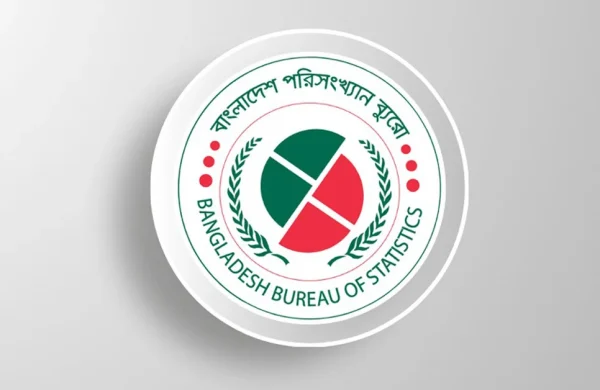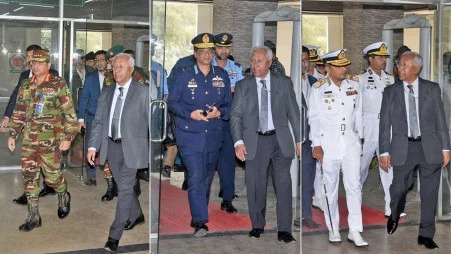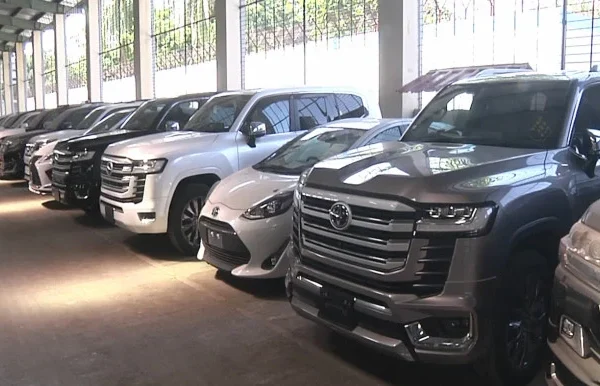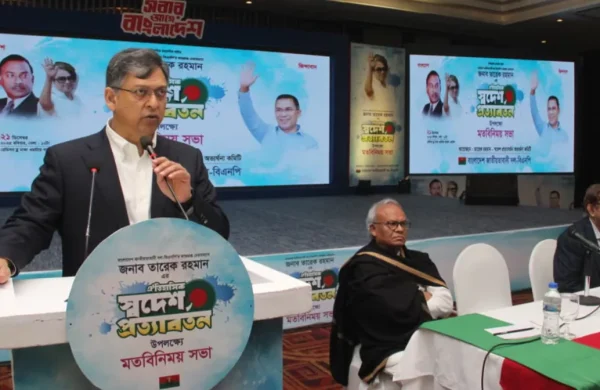Dr Zahid stresses importance of LDC graduation
- Update Time : Saturday, February 1, 2025

TDS Desk:
Former lead economist of the World Bank Bangladesh Office, Dr Zahid Hussain, has said that Bangladesh cannot unilaterally defer its LDC graduation timeframe.
He said: “The United Nations Committee for Development Policy (UN-CDP) recommended Bangladesh’s graduation from the LDCs in 2021. While this recommendation does not automatically enforce graduation, it is largely considered mandatory since the UN General Assembly tends to follow the CDP’s recommendations.”
Dr Zahid made these remarks in a recent interview with the national news agency at his residence while sharing his insights on the country’s graduation from the Least Developed Countries (LDCs) category.
He said that several countries that faced setbacks during the graduation process were granted an extended preparatory period before graduation, providing them with additional time to address any concerns or challenges identified.
Bangladesh has already availed itself of a two-year extension.
Addressing reservations from the business community regarding Bangladesh’s LDC graduation, slated for 2026, Dr Zahid clarified that once a country qualifies for graduation, the responsibility falls on it to ensure that all concerns are adequately addressed.
As Bangladesh prepares for its graduation in 2026, it is imperative for the country to address the concerns of the business community and ensure a smooth transition.
The renowned economist shared these perspectives, providing a comprehensive view of the challenges and opportunities that lie ahead for Bangladesh following its LDC graduation.
Elaborating on the matter, Dr Zahid said: “I think there is now limited scope for deferring the country’s graduation through changes in data and statistics. There is also little scope for bringing down the statistics below the threshold level in terms of per capita income, human development, and vulnerability indices.”
Bangladesh is the first country recommended for graduation by meeting all three criteria, Dr Zahid said, adding: “We’ll have to accept that we’ll graduate and focus on tackling the possible impact on our competitiveness. We should be prepared.”
At the last Ministerial Conference of the World Trade Organization (WTO), held in Abu Dhabi, ministers decided to allow the continuation of LDC trade benefits for graduating LDCs for three more years.
The European Union (EU) will continue providing LDC trade benefits to Bangladesh until 2029, offering a three-year grace period for graduating LDCs.
A few other countries, including Canada, the UK, and Australia, will also continue providing LDC trade benefits to Bangladesh even after its graduation.
When asked about the “middle-income trap,” which many fear Bangladesh is already in, Dr Zahid said that without political stability and structural economic reforms, nothing will help the country escape the trap.
Dr Zahid said: “We need to implement necessary changes in three key areas—export diversification, investment, and skill development. We have a significant opportunity ahead of us, particularly due to the new economic policy of US President Donald Trump.”
Under the current circumstances, multinational companies operating in China are seeking alternative locations to relocate their businesses, including Vietnam, Indonesia, and the Philippines, he said.
Dr Zahid said that Bangladesh is also being discussed on the global stage as a potential destination.
However, the country is still not fully prepared in terms of its investment climate, particularly regarding visa complexities, the readiness of economic zones, business regulation challenges, and money repatriation issues.
He added: “If we can fully prepare, there could be a quantum leap in foreign direct investment (FDI), opening the door to immense opportunities.”
As Bangladesh approaches this crucial transition, Dr Zahid praised the government’s proactive stance on economic zones.
Instead of pursuing an ambitious plan to establish 100 economic zones, the focus has now shifted to urgently creating five well-equipped zones.
He further mentioned: “This strategic move aims to provide the necessary facilities and regulatory reforms to foster a ‘plug-and-play’ environment for investors.”
Dr Zahid observed that by streamlining business regulations and ensuring the readiness of these special economic zones (SEZs), Bangladesh can attract significant foreign direct investment and boost its economic prospects.
He acknowledged the concerns raised by the business community regarding the current business environment.
He pointed out that issues within the financial sector and an inconsistent supply of gas and electricity are major factors contributing to low business confidence.
The former World Bank lead economist also highlighted challenges related to the supply of liquefied natural gas (LNG). He said that the government faces difficulties in maintaining a sustainable supply while selling LNG below the purchase price.
In the new Monetary Policy Statement (MPS), Dr Zahid said that some forward guidance is expected regarding how the central bank will run its policies and programs.
He said: “With the unveiling of the FY26 budget in June this year, we will have a clearer picture of the direction of economic policy and management, and the uncertainty will dissipate.”
Asked whether the government’s economic reform agenda is receiving less importance than other reform agendas, he said that the government is fully aware of the need for economic reforms.
He concluded with: “But despite having strong intent, they often struggle to translate it into action, as the initiatives must come from the administration itself and the relevant ministries.”














